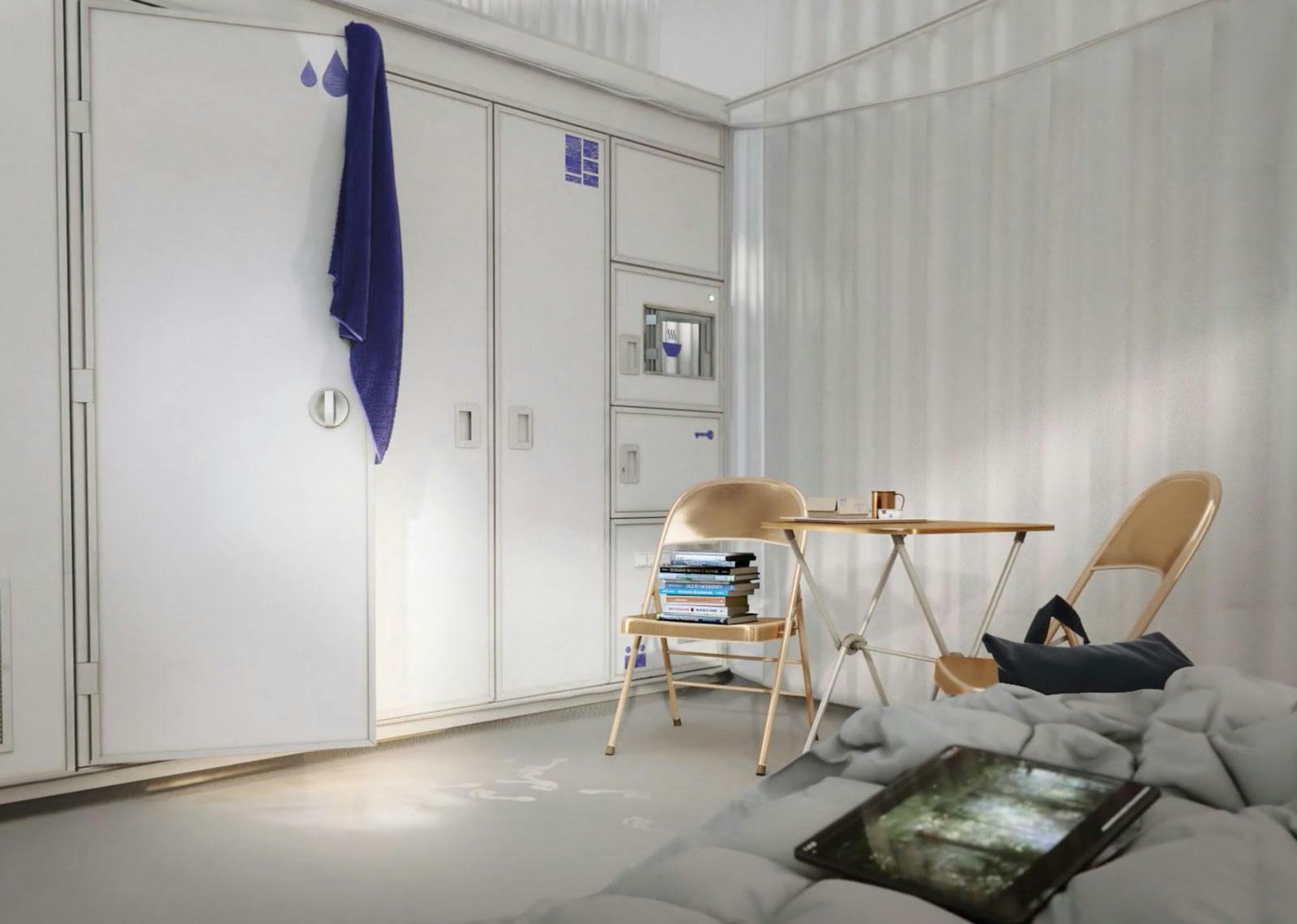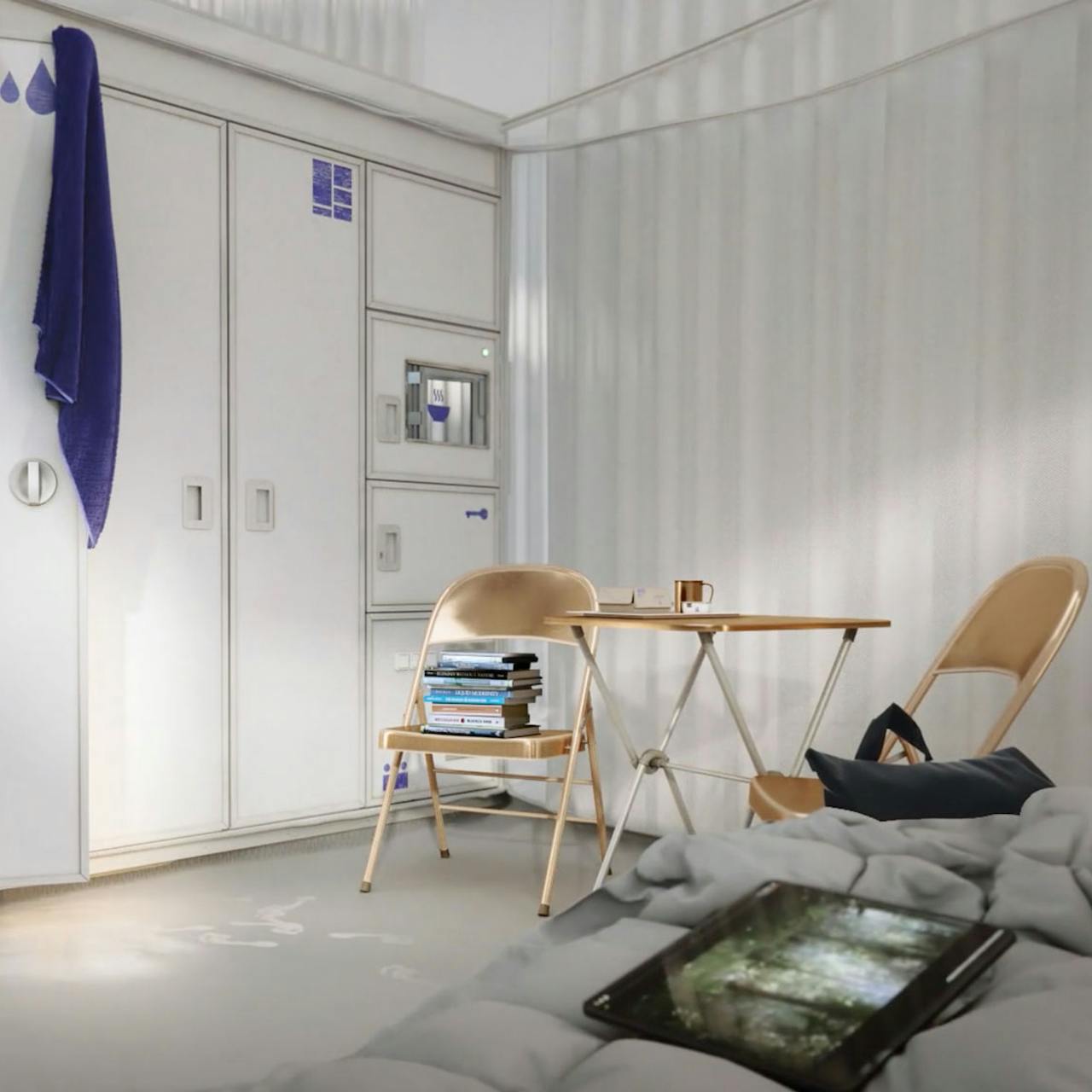Notes on Fortnightism


Carson Chan and Gustav Düsing
Time was different in 2020. An emergent culture of lockdowns and quarantines ushered in by Covid-19 has fundamentally reconfigured and reframed how most of us relate to space, temporality, authority, and one another. Among other novelties, the pathogenic present introduced the fourteen-day quarantine into our lives, what we might describe as Fortnightism — from fortnight or a period of two-weeks. Fortnightism is among the new categories of space and time that will become increasingly normal as we enter into an age of pandemics fueled by humanity’s troubled relationship to our environments both built and “natural.” In response to this new timestream, new environmental tools and new spatial and temporal technologies will be needed to facilitate health and wellbeing. We need a pandemic architecture.
Architecture as it currently exists is inadequate to respond to accelerating crises of health and the environment. The architectural response to Covid has been one without imagination, if still born of necessity: hospital tents with rows of identical beds, for example. Rather than clinging to insufficient human frameworks of space and time, to borders and boundaries, for which viruses have no need nor interest, architecture might instead learn from the worlds of other species it so often seems to wish to stake off or smooth over. Architecture should be like a virus: adaptable, mobile, scalable, and resilient.
Writer, researcher, and curator Carson Chan and architect and educator Gustav Düsing propose a new spatial paradigm: the Responsive Care Center (RCC), a transportable and quickly deployable quarantine facility that is flexible in purpose and scale. Layers and membranes of antimicrobial textiles and structural elements graft onto existing infrastructure and can be adapted in form and function to local needs. Privacy is created while connectivity is ensured. More than a tool for dealing with disease outbreaks, the RCC is also a proposal for design that is salutogenic, or supportive of conditions for healthfulness, rather than merely responding to illness.
Where there is now anxiety and difficulty there might be an opportunity. The weirding of time has also been a shifting of categories we take for granted. Weddings and funerals happen over Zoom. For those with desk jobs, any semblance of live/work divide has likely been eradicated, while the privileges and inequities of class, race, gender, and ability, among others, have been exacerbated. The pandemic has exaggerated the conditions that predated, and arguably, aggravated it, while shifting or eradicating many others entirely—call it Covid category confusion. In the RCC, as one lives out their twilight fortnight removed from the normative timestream, perhaps there could be time for self-reflection and improvement for both personal and social benefit: maybe you’ll take a coding class; maybe you’ll finally learn to meditate; maybe you will volunteer as a tutor over Facetime; maybe you’ll nap a lot. If we have learned anything in the past year, it’s that the relationships between the health of the self and the health of the society are porous and ever-changing.
The RCC is a proposal for taking present conditions and developing it into future form; it’s a prototype for creating new conditions for a more healthful spacetime discontinuum.
